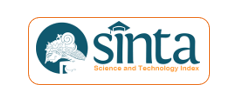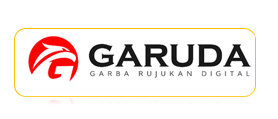TEACHING CONTROVERSIAL HISTORICAL EVENTS: PEDAGOGICAL STRATEGIES AND STUDENT OUTCOMES
Abstract
Keywords
Full Text:
PDFReferences
Adway, A. M. (2023). The Impact of Television Drama in Understanding History. Journal of Al-Tamaddun, 18(1), 67–78. https://doi.org/10.22452/JAT.vol18no1.6
Afrianto, R., & Fahruddin, F. (2022). Pemanfaatan Google Classroom Untuk Program Remidial Online Pada Pembelajaran Sejarah. Jurnal Pendidikan Sejarah Indonesia, 5(2), 148. https://doi.org/10.17977/um0330v5i2p148-158
Al Maani, D., & Shanti, Z. (2023). Technology-Enhanced Learning in Light of Bloom’s Taxonomy: A Student-Experience Study of the History of Architecture Course. Sustainability (Switzerland), 15(3). https://doi.org/10.3390/su15032624
Asad, R., Altaf, S., Ahmad, S., Mahmoud, H., Huda, S., & Iqbal, S. (2023). Machine Learning-Based Hybrid Ensemble Model Achieving Precision Education for Online Education Amid the Lockdown Period of COVID-19 Pandemic in Pakistan. Sustainability (Switzerland) , 15(6). https://doi.org/10.3390/su15065431
Assumpção, A. L., & Castral, P. C. (2024). A Critical History of Formal Pedagogical Strategies for the Valorization of Cultural Heritage in Brazil. Heritage, 7(1), 259–271. https://doi.org/10.3390/heritage7010013
Borrero, N. (2023). Embracing the Collective: Challenges and Opportunities in Teaching and Teacher Education in the Wake of COVID-19. Social Sciences, 12(3). https://doi.org/10.3390/socsci12030194
Brewis, G., & Hannan, K. (2023). The Worlds of UCL: teaching, learning and institutional histories. London Review of Education, 21(1), 1–12. https://doi.org/10.14324/LRE.21.1.12
Brohinsky, J. (2023). When the Light Goes Out: Ignorance and Multiplicity in Teaching and Learning. ECNU Review of Education, 1–19. https://doi.org/10.1177/20965311231167190
Bures, M., Ripka, V., Buresova, K., Frajtak, K., Maha, J., & Cinatl, K. (2022). An Innovative E-Learning Support for Modern History Distance Learning and the Experience during the COVID-19 Lockdown. Sustainability (Switzerland), 14(6), 1–19. https://doi.org/10.3390/su14063631
Candel, E. C., de-la-Peña, C., & Yuste, B. C. (2024). Pre-service teachers’ perception of active learning methodologies in history: Flipped classroom and gamification in an e-learning environment. Education and Information Technologies, 29(3), 3365–3387. https://doi.org/10.1007/s10639-023-11924-0
Chen, D., Zhang, W., Bi, J. W., Qiu, H., & Lyu, J. (2024). Hosts’ online affinities and their impacts on the number of online reviews on peer-to-peer platforms. Tourism Management, 100(July 2022), 104817. https://doi.org/10.1016/j.tourman.2023.104817
Corrales, M., Rodríguez, F., Merchán, M. J., Merchán, P., & Pérez, E. (2024). Comparative Analysis between Virtual Visits and Pedagogical Outings to Heritage Sites: An Application in the Teaching of History. Heritage, 7(1), 366–379. https://doi.org/10.3390/heritage7010018
Damkuviene, M., Valuckiene, J., Balciunas, S., & Petukiene, E. (2023). Education Professionals’ Cooperative Learning for the Development of Professional Capital. Sustainability (Switzerland), 15(14), 1–19. https://doi.org/10.3390/su151410972
Fahruddin, F., Jana, P., Setiawan, J., Rochmat, S., Aman, A., & Yuliantri, R. D. A. (2022). Student Perception of Online Learning Media Platform During the Covid-19 Pandemic. Journal of Education Technology, 6(1), 126. https://doi.org/10.23887/jet.v6i1.42738
Fahruddin, & Wibowo, B. A. (2020). Bahan Ajar Evaluasi Pembelajaran Sejarah. UPY Press.
Fairless Nicholson, J. (2023). Historical geographies of alternative, and non-formal education: Learning from the histories of Black education. Geography Compass, 17(11), 12724. https://doi.org/10.1111/gec3.12724
Fuhrmeister, P., & Myers, E. B. (2022). Structural variation in the temporal lobe predicts learning and retention of non-native speech sounds. Language, Cognition and Neuroscience, 37(1), 63–79. https://doi.org/10.1080/23273798.2021.1944658
Granado-Peinado, M., & Huertas, J. A. (2023). A Teaching Innovation Project on Writing Critical Essays in a History of Psychology Course. Teaching of Psychology, 50(3), 284–290. https://doi.org/10.1177/00986283211030909
Hacques, G., Komar, J., & Seifert, L. (2021). Learning and transfer of perceptual-motor skill: Relationship with gaze and behavioral exploration. Attention, Perception, and Psychophysics, 83(5), 2303–2319. https://doi.org/10.3758/s13414-021-02288-z
Ibagón Martín, N. J., & Miralles Martínez, P. (2022). Conciencia histórica e interés en la historia de los estudiantes colombianos y españoles de educación secundaria. Revista Electrónica de Investigación Educativa, 24, 1–14. https://doi.org/10.24320/redie.2022.24.e18.3938
Idacavage, S., & McAndrews, L. (2024). Letting go of fear and biases: new perspectives on historic clothing for design education in the post-pandemic age of digitisation. International Journal of Fashion Design, Technology and Education, 17543266. https://doi.org/10.1080/17543266.2024.2332782
Kiljunen, J., Sointu, E., Äikäs, A., Valtonen, T., & Hirsto, L. (2023). Higher education and the flipped classroom approach: efficacy for students with a history of learning disabilities. Higher Education, 0123456789. https://doi.org/10.1007/s10734-023-01162-1
Lee, S., & Chun, J. S. (2024). Social work education in South Korea in the era of the Fourth Industrial Revolution. Social Work Education, 2615479. https://doi.org/10.1080/02615479.2024.2337265
Maxcey, A. M., Shiffrin, R. M., Cousineau, D., & Atkinson, R. C. (2022). Two case studies of very long-term retention. Psychonomic Bulletin and Review, 29(2), 563–567. https://doi.org/10.3758/s13423-021-02002-y
Maynard, R. A., Baelen, R. N., Fein, D., & Souvanna, P. (2020). Using Iterative Experimentation to Accelerate Program Improvement: A Case Example. Evaluation Review, 20923199. https://doi.org/10.1177/0193841X20923199
Miralles-Martínez, P., Gómez-Carrasco, C. J., Arias, V. B., & Fontal-Merillas, O. (2019). Digital resources and didactic methodology in the initial training of history teachers. Comunicar, 27(61), 41–51. https://doi.org/10.3916/C61-2019-04
Mulyana, A., & Kurniawati, Y. (2020). Phenomenography analysis of students’ historical thinking ability in studying social history. Cakrawala Pendidikan, 39(3), 666–678. https://doi.org/10.21831/cp.v39i3.28982
Ofianto, Aman, Tri Zahra, N., & Nur Fatah, A. (2022). The Development of Historical Thinking Assessment to Examine Students’ Skills in Analyzing the Causality of Historical Events. European Journal of Educational Research, 11(2), 609–619. https://doi.org/https://doi.org/10.12973/eu-jer.11.2.609
Pangestu, R. S., & Fahruddin, F. (2024). Quizzz Media As an Assessment for History Learning in the Digital Era. Progres Pendidikan, 5(1), 39–43. https://doi.org/10.29303/prospek.v5i1.434
Phimphimon, N., Intasena, A., Srimunta, T., & Khantasiri, P. (2024). Improving Critical Reading Abilities in 10th Graders: An Active Learning Approach. International Journal of Learning, Teaching and Educational Research, 23(3), 186–198. https://doi.org/10.26803/ijlter.23.3.10
Rajab, L., Almarabeh, T., Mohammad, H., & Majdalawi, Y. K. (2024). Strategic evaluation of e-learning: A case study of the university of Jordan during crisis. International Journal of Data and Network Science, 8(1), 109–116. https://doi.org/10.5267/j.ijdns.2023.10.012
Ritzen, J. (2023). A personal history of the political economy of education. International Journal of Educational Development, 103, 1–7. https://doi.org/10.1016/j.ijedudev.2023.102916
Rowley, T., & McCrudden, M. T. (2020). Retrieval practice and retention of course content in a middle school science classroom. Applied Cognitive Psychology, 34(6), 1510–1515. https://doi.org/10.1002/acp.3710
Ruprecht, K., Dunlop, W., Wah, E., Phillips, C., & Martin, S. (2023). “A human face and voice”: transgender patient-educator and medical student perspectives on gender-diversity teaching. BMC Medical Education, 23(1), 1–10. https://doi.org/10.1186/s12909-023-04591-9
Rutherford, S. (2020). Using desirable difficulty concepts to enhance durable learning in design education. Art, Design and Communication in Higher Education, 19(1), 65–79. https://doi.org/10.1386/adch_00014_1
Sá, M. J. (2023). A Multidimensional Model of Analysis of Students’ Global Experience in Higher Education. Education Sciences, 13(3), 1–15. https://doi.org/10.3390/educsci13030232
Saldanha, K., Currin-McCulloch, J., Muskat, B., Simon, S. R., Bergart, A. M., Mesbur, E. S., Guy, D., Chilwalo, N. B., Seck, M. M., Tully, G., Lind, K., Lee, C. D., Hall, N., & Kelly, D. (2021). Turning boxes into supportive circles: Enhancing online group work teaching during the COVID-19 pandemic. Social Work with Groups, 44(4), 310–327. https://doi.org/10.1080/01609513.2021.1910110
Scholten, H. (2024). Historia y política en la episteme educativa de Amanda Labarca (1938-1944). En-Claves Del Pensamiento, 0(35), 89–107. https://doi.org/10.46530/ecdp.v0i35.650
Shume Nadew, A., Ibrahim, F. A., & Hailu, A. H. (2024). History education in Ethiopian secondary schools (1943–1991): Why it could not yield the desired results? A historical analysis. Cogent Education, 11(1). https://doi.org/10.1080/2331186X.2024.2310962
Smets, W. (2024). The purposes of historical canons in multicultural history education. Journal of Curriculum Studies, 00(00), 1–12. https://doi.org/10.1080/00220272.2024.2328050
Sorina, G. (2024). Logical and Methodological Foundations of Teaching Humanities in the System of Higher Education. Filosofiya. Zhurnal Vysshey Shkoly Ekonomiki, 8(1), 54–66. https://doi.org/10.17323/2587-8719-2024-1-54-66
Stewart, E. C., & Pittman, A. L. (2021). Learning and retention of novel words in musicians and nonmusicians. Journal of Speech, Language, and Hearing Research, 64(7), 2870–2884. https://doi.org/10.1044/2021_JSLHR-20-00482
Temerbayeva, A., Kabbasova, A., Zharkumbaeva, M., & c, Z. R. (2023). Influence of Historical Education on the Formation of Civic Identity of University Students in the Learning Process. European Journal of Contemporary Education, 12(4), 1438–1446. https://doi.org/10.13187/ejced.2023.4.1438
Van Stan, J. H., Park, S. W., Jarvis, M., Stemple, J., Hillman, R. E., Sternad, D., Chandrasekaran, B., & Jiang, J. J. (2021). Quantitative assessment of learning and retention in virtual vocal function exercises. Journal of Speech, Language, and Hearing Research, 64(1), 1–15. https://doi.org/10.1044/2020_JSLHR-20-00357
Walker, W. S. (2022). History museums: Enhancing audience engagement through digital technologies. Handbook of Digital Public History, 165–174. https://doi.org/10.1515/9783110430295-014
Walsh, M. M., Krusmark, M. A., Jastrembski, T., Hansen, D. A., Honn, K. A., & Gunzelmann, G. (2023). Enhancing learning and retention through the distribution of practice repetitions across multiple sessions. Memory and Cognition, 51(2), 455–472. https://doi.org/10.3758/s13421-022-01361-8
White, A., & Greene, J. A. (2024). Which History and Social Science Concepts Should Inform Health Professions Education? AMA Journal of Ethics, 26(1), 62–67. https://doi.org/10.1001/amajethics.2024.62
Widawski, K., & Oleśniewicz, P. (2023). Education in Tourism—Digital Information as a Source of Memory on the Examples of Places Related to the Holocaust in Poland during World War II. Sustainability (Switzerland), 15(14). https://doi.org/10.3390/su151410903
Yulifar, L., & Aman. (2023). Resources of history learning in conventional and modern continuum lines. Cakrawala Pendidikan, 42(3), 586–600. https://doi.org/https://doi.org/10.21831/cp.v42i3.63713
Zhu, B., Kaber, D., Zahabi, M., & Ma, W. (2020). Effects of feedback type and modality on motor skill learning and retention. Behaviour and Information Technology, 39(4), 431–442. https://doi.org/10.1080/0144929X.2019.1599068
DOI: http://dx.doi.org/10.17977/um0330v7i1p59-72
Refbacks
- There are currently no refbacks.

This work is licensed under a Creative Commons Attribution-ShareAlike 4.0 International License.
Editorial office:
History Department, Faculty of Social Science,
Universitas Negeri Malang
Jl. Semarang No.5 Kota Malang 65145,
Phone. (0341) 551312,
email: jpsi@um.ac.id
Website: http://journal2.um.ac.id/index.php/sejarah/index
E-ISSN 2622-1837

This work is licensed under a CC BY SA 4.0.








